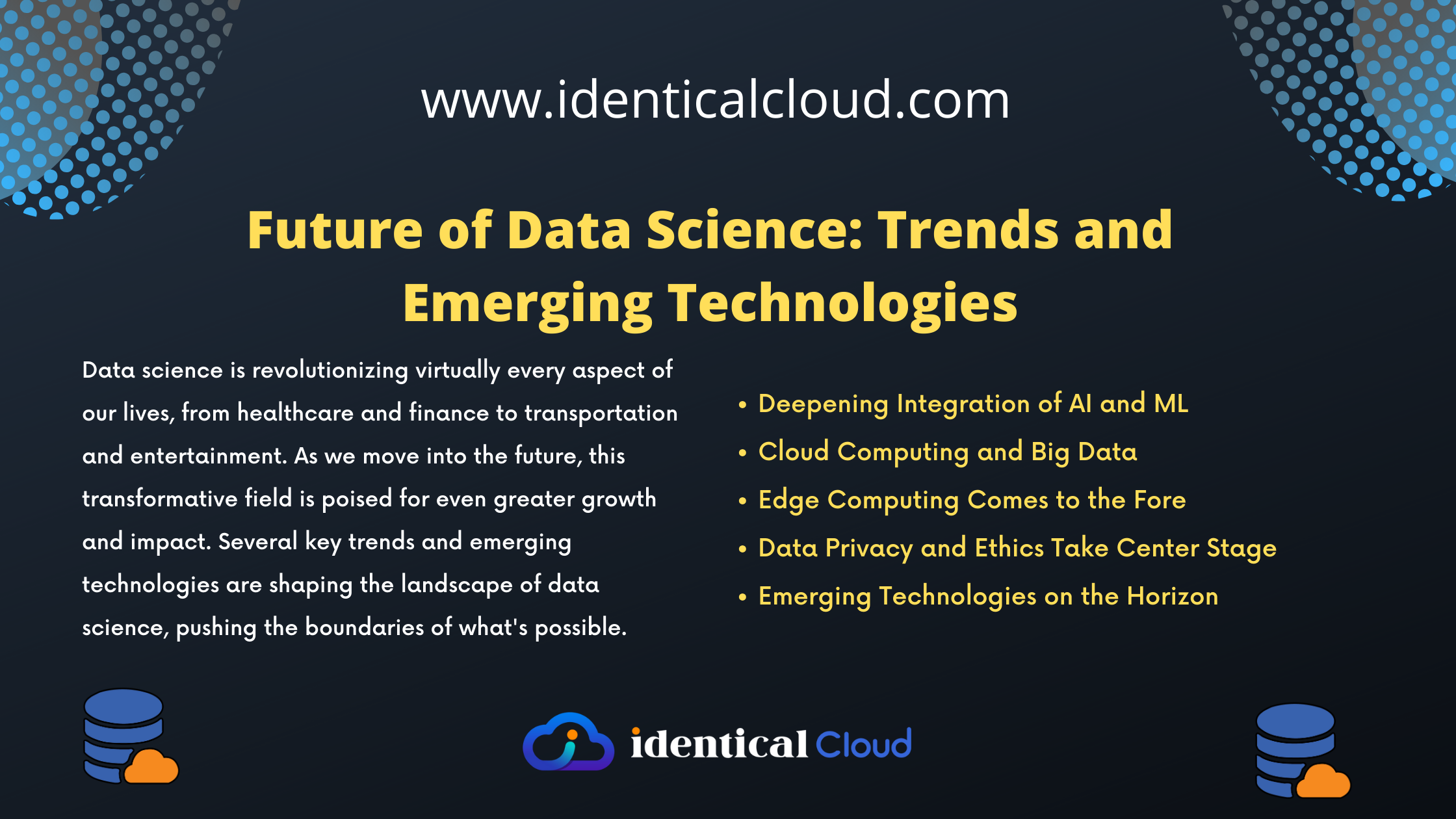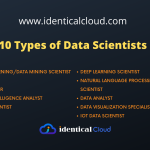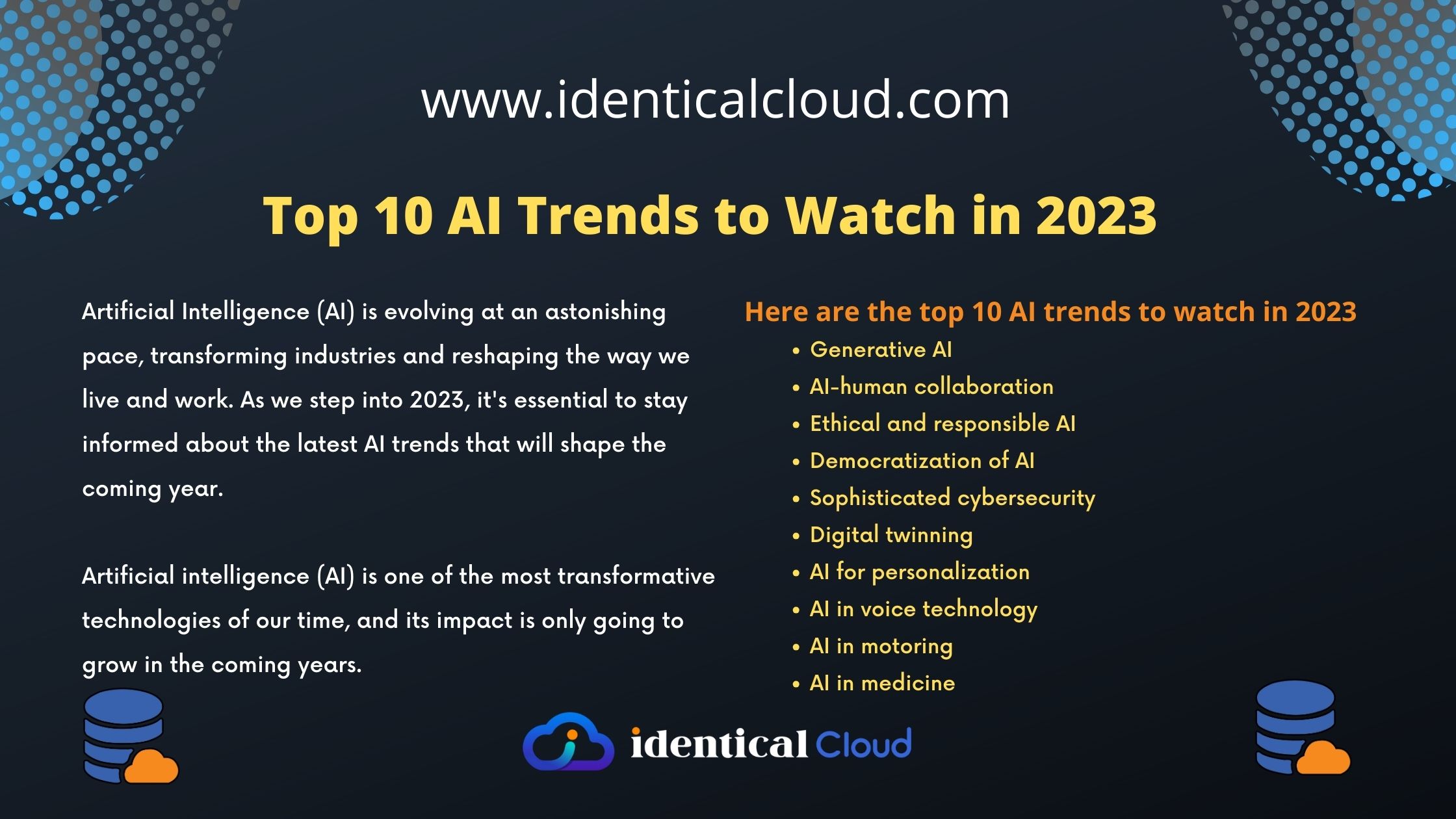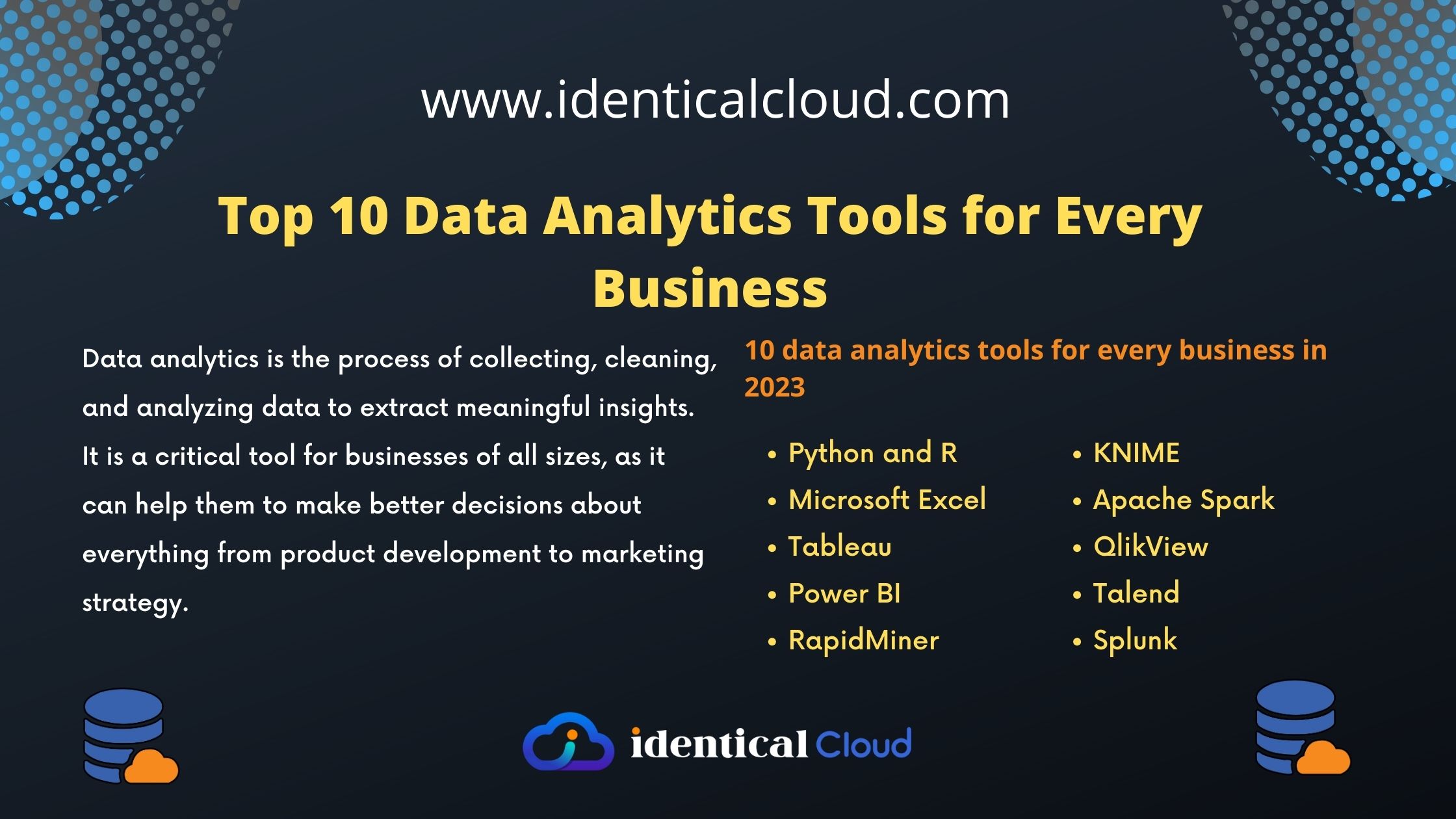
Future of Data Science: Trends and Emerging Technologies
Future of Data Science: Trends and Emerging Technologies
Data science is revolutionizing virtually every aspect of our lives, from healthcare and finance to transportation and entertainment. As we move into the future, this transformative field is poised for even greater growth and impact. Several key trends and emerging technologies are shaping the landscape of data science, pushing the boundaries of what’s possible.
1. Deepening Integration of AI and ML:
Artificial intelligence (AI) and machine learning (ML) are already deeply integrated into data science, and their influence is only going to deepen. Advancements in deep learning, natural language processing (NLP), and computer vision are unlocking powerful new capabilities, such as:
- Automated data cleaning and feature engineering: AI can handle the tedious tasks of cleaning and preparing data, freeing up data scientists for more strategic work.
- Explainable AI (XAI): As AI models become increasingly complex, XAI techniques are being developed to ensure transparency and accountability in their decision-making processes.
- Personalized AI and ML: Data-driven models will be tailored to individual users, leading to highly customized experiences and recommendations across various domains.
2. Cloud Computing and Big Data:
The ever-growing volume of data necessitates powerful computing infrastructure. Cloud-based solutions offer scalability and cost-effectiveness, enabling data scientists to:
- Analyze massive and complex datasets: Cloud-based data lakes facilitate the analysis of diverse data sets, leading to deeper insights and informed decision-making.
- Develop and deploy models faster: Cloud-based tools and platforms accelerate the model development and deployment process, allowing for rapid iteration and experimentation.
- Collaborate more effectively: Cloud environments enable seamless collaboration between data scientists and other stakeholders, regardless of location.
3. Edge Computing Comes to the Fore:
Edge computing brings data analysis closer to the source, enabling real-time insights and faster decision-making, particularly in areas like:
- Internet of Things (IoT) applications: Edge computing is crucial for analyzing data generated by sensor-laden devices in real-time, enabling intelligent and responsive systems.
- Autonomous systems: Self-driving cars and other autonomous systems rely on edge computing to analyze sensor data and make decisions in real-time, ensuring safety and efficiency.
- Predictive maintenance: Edge computing helps predict potential equipment failures before they occur, preventing downtime and optimizing maintenance schedules.
4. Data Privacy and Ethics Take Center Stage:
As data collection and analysis become increasingly pervasive, concerns about data privacy and ethics are growing. This will lead to:
- Enhanced data governance and security: Robust frameworks and security measures will be implemented to ensure responsible data use and protect user privacy.
- Development of ethical AI principles: Guidelines and regulations will be established to promote the ethical use of AI and minimize potential risks.
- Greater user control and transparency: Users will have greater control over their data and expect transparency about how it is collected, used, and shared.
5. Emerging Technologies on the Horizon:
Several emerging technologies hold immense potential for revolutionizing data science:
- Quantum computing: By harnessing the power of quantum mechanics, quantum computers could solve complex problems that are currently intractable for classical computers, ushering in breakthroughs in various fields.
- Blockchain technology: Blockchain offers a secure and transparent platform for data sharing and exchange, facilitating the development of innovative data-driven applications.
- 5G and next-generation networks: These high-bandwidth networks will enable real-time data transmission and support the growing demand for data-intensive applications.
- Genomics: Advances in genomics will allow scientists to analyze vast amounts of genetic data, paving the way for personalized medicine and other groundbreaking applications in healthcare.
The future of data science is dynamic and brimming with possibilities. By embracing these emerging trends and technologies, data scientists can prepare themselves for success in the years to come. The field is constantly evolving, requiring a commitment to continuous learning and adaptation. Those who are curious, adaptable, and willing to embrace the unknown will be at the forefront of this exciting journey.







